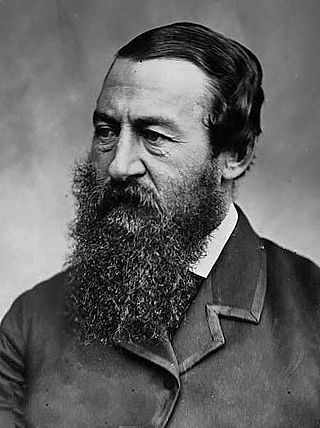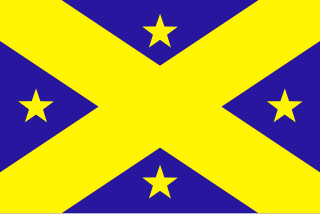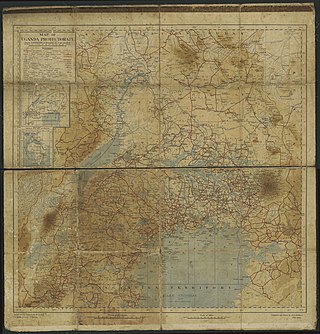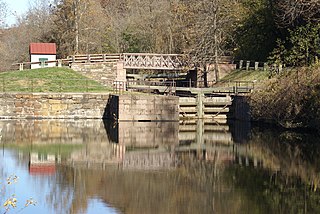
Sir Henry Morton Stanley was a Welsh-American explorer, journalist, soldier, colonial administrator, author, and politician famous for his exploration of Central Africa and search for missionary and explorer David Livingstone. Besides his discovery of Livingstone, he is mainly known for his search for the sources of the Nile and Congo rivers, the work he undertook as an agent of King Leopold II of the Belgians that enabled the occupation of the Congo Basin region, and his command of the Emin Pasha Relief Expedition. He was knighted in 1897, and served in Parliament as a Liberal Unionist member for Lambeth North from 1895 to 1900.

Sir Samuel White Baker was an English explorer, officer, naturalist, big game hunter, engineer, writer and abolitionist. He also held the titles of Pasha and Major-General in the Ottoman Empire and Egypt. He served as the Governor-General of the Equatorial Nile Basin between April 1869 and August 1873, which he established as the Province of Equatoria. He is mostly remembered as the first European to visit Lake Albert, as an explorer of the Nile and interior of central Africa, and for his exploits as a big game hunter in Asia, Africa, Europe and North America. Baker wrote a considerable number of books and published articles. He was a friend of King Edward VII, who as Prince of Wales, visited Baker with Queen Alexandra in Egypt. Other friendships were with explorers Henry Morton Stanley, Roderick Murchison, John H. Speke and James A. Grant, with the ruler of Egypt Pasha Ismail The Magnificent, Major-General Charles George Gordon and Maharaja Duleep Singh.

Equatoria is the southernmost region of South Sudan, along the upper reaches of the White Nile and the border between South Sudan and Uganda. Juba, the national capital and the largest city in South Sudan, is located in Equatoria. Originally a province of Anglo-Egyptian Sudan, it also contained most of northern parts of present-day Uganda, including Lake Albert and West Nile. It was an idealistic effort to create a model state in the interior of Africa that never consisted of more than a handful of adventurers and soldiers in isolated outposts.

The Emin Pasha Relief Expedition of 1887 to 1889 was one of the last major European expeditions into the interior of Africa in the nineteenth century. Led by Henry Morton Stanley, its goal was ostensibly the relief of Emin Pasha, the besieged Egyptian governor of Equatoria, who was threatened by Mahdist forces.

The Lado Enclave was a leased territory administered by the Congo Free State and later by the Belgian Congo that existed from 1894 until 1910, situated on the west bank of the Upper Nile in what is now South Sudan and northwest Uganda. Its capital was the town of Lado.

Dufile was originally a fort built by Emin Pasha, the Governor of Equatoria, in 1879; it is located on the Albert Nile just inside Uganda, close to a site chosen in 1874 by then-Colonel Charles George Gordon to assemble steamers that were carried there overland. Abandoned by Emin's people in January 1889, Dufile being within the Lado Enclave was reoccupied and reconstructed by Belgian forces from 1902 to 1907.

Annapolis Royal is a town in and the county seat of Annapolis County, Nova Scotia, Canada. The community, known as Port Royal before 1710, is recognised as having one of the longest histories in North America, preceding the settlements at Plymouth, Jamestown and Quebec. For nearly 150 years, it served as the capital of Acadia and subsequently Nova Scotia until the establishment of Halifax in 1749.

Gulu is a city in the Northern Region of Uganda. It is the commercial and administrative centre of Gulu District.

Murchison Falls National Park (MFNP) is a national park in Uganda managed by the Ugandan Wildlife Authority. Located in north-western Uganda, it spreads inland from the shores of Lake Albert around the Victoria Nile up to the Karuma Falls.

The Mà'dí are a Central Sudanic speaking people that live in Magwi County in Eastern Equatoria, South Sudan and the districts of Adjumani and Moyo in Uganda. From south to north, the area runs from Nimule, at the South Sudan Uganda border, to Nyolo River where the Ma’di mingle with the Acholi, the Bari, and the Lolubo. From the east to west, it runs from Parajok/Magwi to Uganda across the River Nile.

Wadelai was a boma at a narrow point on the Albert Nile in what is now northern Uganda. There were several shortlived colonial stations there, the first being the final chief station of Emin Pasha when Governor of Equatoria. Wadelai gives its name to a current Ugandan sub-county.

Mont Clare is a village in Upper Providence Township, Montgomery County, Pennsylvania. The village is located on the left bank of the Schuylkill River opposite Phoenixville and Chester County. Mont Clare is at the site of the former Jacobs' ford. Mont Clare hosts the only functional lock and one of only two remaining watered stretches of the Schuylkill Canal. Mont Clare was the birthplace of the infamous outlaw Sundance Kid. As of the 2020 United States census the population was 1,852.
Articles related to Uganda include:

Emmanuel Amey Ojara, MBChB, MMed Surgery, was a medical doctor, surgeon, and oncologist in East Africa. At the time of his death, he was a senior lecturer at the University of Nairobi, School of Medicine.
Housing Finance Bank (HFB) is a commercial bank in Uganda. It is one of the commercial banks licensed by Bank of Uganda, the national banking regulator.
PostBank Uganda is a commercial bank in Uganda, licensed and supervised by the Bank of Uganda, the country's central bank and national banking regulator. The bank received her tier-1 banking license in December 2021.
Sir Samuel Baker Secondary School was an only-boys boarding middle and high school before it turned to a mixed school as of 2019, located in Gulu, Gulu District in Northern Uganda. The school is named after Sir Samuel White Baker, the British explorer, officer, naturalist, big game hunter, engineer, writer and abolitionist.

The Acholi people are a Nilotic ethnic group of Luo peoples, found in Magwi County in South Sudan and Northern Uganda, including the districts of Agago, Amuru, Gulu, Kitgum, Nwoya, Lamwo, Pader and Omoro District. The Acholi were estimated to number 2.3 million people and over 45,000 more were living in South Sudan in 2000.

ruu Falls, also known as Aruu Falls Camspite, are natural waterfalls located in Northern Uganda along the Gulu Kitgum highway in Pader District. The falls are 47 kilometers away from Gulu, 57 kilometers away from Kitgum, and 386 kilometers away from Kampala, the capital city of Uganda.

Equatoria was a Mudiriyah of the Khedivate of Egypt in the late 19th century. It was located in modern-day South Sudan, the Democratic Republic of the Congo, and Uganda. Equatoria, as an Egyptian province, was created on the 26th of May, 1871, following the formal annexation of Gondokoro by Egypt, which was organized by Samuel Baker. Throughout its early existence, the provincial administration in Gondokoro was plagued by instability, as conflict with slave traders and the native Bari tribes meant that the governor only controlled the areas around the capital and the forts. However, during its later existence, Equatoria experienced a “golden period”, where the province was self-sufficient, prosperous, and the Egyptians under Emin Pasha maintained positive relations with both the interlacustrine kingdoms, and the surrounding tribes. Ultimately however, the outbreak of the Mahdist War in the Sudan which severed communications with Khartoum and Cairo, led to the fall of Equatoria, as Mahdist offensives led by Karam Allāh Muḥammad Kurkusāwī surrounded the Egyptian forts, which forced Emin to withdraw south to Wadelai, until he finally abandoned the province in early 1889, following an expedition sent to relieve his forces.


















